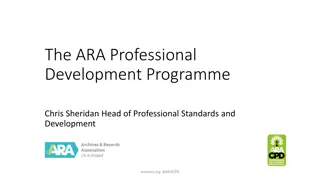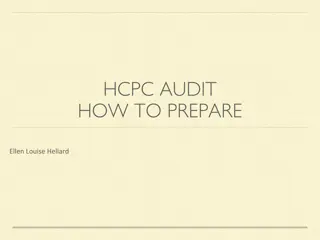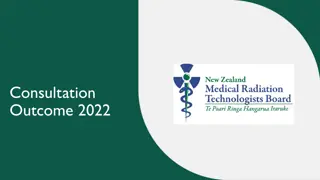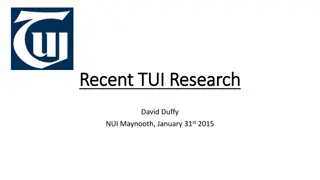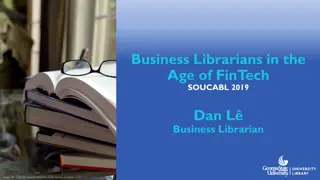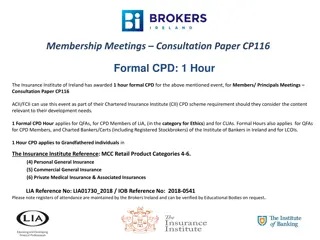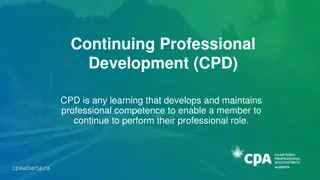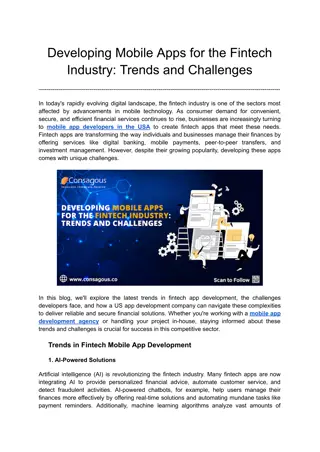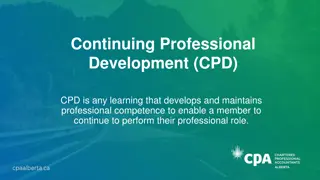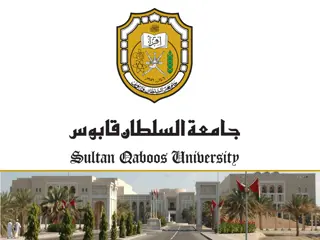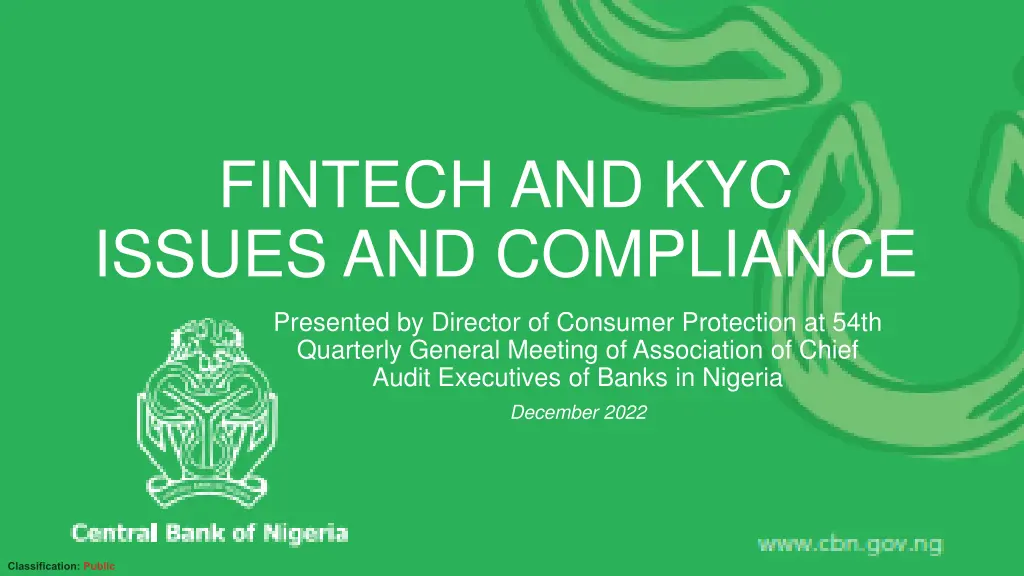
Fintech Innovations and KYC Compliance Overview
Explore the impact of Fintech on financial services and the challenges related to KYC compliance highlighted at a banking event in Nigeria. Learn about the importance of KYC, emerging issues like fraud, and the need for regulatory responses in the evolving Fintech landscape.
Download Presentation

Please find below an Image/Link to download the presentation.
The content on the website is provided AS IS for your information and personal use only. It may not be sold, licensed, or shared on other websites without obtaining consent from the author. If you encounter any issues during the download, it is possible that the publisher has removed the file from their server.
You are allowed to download the files provided on this website for personal or commercial use, subject to the condition that they are used lawfully. All files are the property of their respective owners.
The content on the website is provided AS IS for your information and personal use only. It may not be sold, licensed, or shared on other websites without obtaining consent from the author.
E N D
Presentation Transcript
FINTECH AND KYC ISSUES AND COMPLIANCE Presented by Director of Consumer Protection at 54th Quarterly General Meeting of Association of Chief Audit Executives of Banks in Nigeria December 2022
Outline 1. INTRODUCTION 2. KYC 3. THE EMERGING ISSUES AND CONCERNS 4. REGULATORY RESPONSE TO THE DEVELOPMENT OF FINTECH 5. WAY FOWARD 7/3/2025 www.cbn.gov.ng 2
Introduction Fintech describes the innovative and creative use of technology to design and deliver financial products and services in an effective and efficient way. Globally, FinTechs are rapidly disrupting traditional banking with the surge in innovative and convenient digital platforms offering financial services like payments, savings, lending. Traditional Financial Services Providers (FSP) are also increasingly evolving by integrating new technology into their services to meet customers demand for ease, efficiency, and a better user experience. The increased usage of technology in banking has no doubt brought about introduction of innovative banking products and has deepened financial inclusion. 7/3/2025 www.cbn.gov.ng 3
Introduction Despite the upside with Fintech innovation, it has also amplified various threats such as electronic frauds, data privacy breaches, identity theft, limited disclosures and KYC issues amongst others. FSP must strike a balance between the opportunities that abound in the Fintech space and the challenges/risks that come with it. 7/3/2025 www.cbn.gov.ng 4
Know Your Customer Know Your Customer (KYC) - Identifying customers and verifying that they are who they say they are . Financial Services Providers are required to comply with KYC requirements which include: Identify customers and verify customer s identification (government issues IDs and incorporation documents) Identify and verify persons acting on behalf of a natural or legal entity. Identify the beneficial owner Understand the nature of the transaction with the customer Conduct enhanced due diligence where risks are higher. Ensure the traceability of transactions - adequate documentation Not carry out transactions where the customer is unable to meet Customer Due Diligence (CDD) requirements 7/3/2025 www.cbn.gov.ng 5
Emerging Issues & Concerns Accounts/wallets used as conduits for cashing out proceeds of fraud Proceeds of fraud are being cashed out through accounts some FSP. This can be attributed to relaxed account opening requirements. associated with Non validation of details during account opening Details (Phone number and Bank Verification Number (BVN)) provided by prospective customers are not adequately validated against the BVN and National Identity Management Commission (NIMC) data bases. Identity Theft Accounts are opened with details of individuals without their knowledge 7/3/2025 www.cbn.gov.ng 6
Emerging Issues & Concerns Non-implement transaction limits in line with 3-Tiered KYC Regulation Transaction limits as specified in the 3-Tiered KYC Circular are not being complied with. The limit of transactions documentation submitted during account opening are specified in line with Opening and operation of accounts without stipulated documentation requirements High value transactions are carried out on accounts that have minimal documentation. The Anti-Money Laundering, Combating the Financing of Terrorism and Countering and Financing of Terrorism (AML/CFT) regulation has stipulated the level of Know Your Customer (KYC) to be conducted on accounts that receive high value transaction. 7/3/2025 www.cbn.gov.ng 7
Emerging Issues & Concerns These challenges expose the eco-system to various risks including a decrease in consumer confidence in the system and more importantly diminished transaction traceability. All transactions should be traceable, and all associated beneficiaries identified. 7/3/2025 www.cbn.gov.ng 8
Regulatory response to the development of fintech The CBN in line with its regulatory function and mandate has over time proactively issued regulations with the aim of ensuring Consumer Protection, responsible business conduct and ensuring global best practices while also encouraging innovation in the ecosystem. Some of these are: CBN Framework for Regulatory Sandbox operations An initiative of central banks all over the world to enable firms to test innovative products and/or services on a small scale with real consumers before they are launched. Regulators also learn from it. Regulatory Framework for Open Banking in Nigeria -Establishes framework for data sharing across banking and payments ecosystem. 7/3/2025 www.cbn.gov.ng 9
Regulatory response to the development of fintech Development of the Risk Based Cybersecurity Framework and Guidelines for Deposit Money banks and Payments Service Providers - To provide guidance to DMBs and PSPs in the implementation of their Cybersecurity programs. Guidelines of Mobile Money Services in Nigeria - To ensure a structured and orderly development of mobile money services. Consumer Protection Regulations -The Consumer Protection Regulation was issued to amongst other things protect consumers from unfair and exploitative practices by Institutions in their dealings with the consumers and unethical and predatory practices that undermine consumer confidence in the use of financial products and services 7/3/2025 www.cbn.gov.ng 10
Regulatory response to the development of fintech AML/CFT regulation - To amongst other objectives, provide Anti-Money Laundering, Combating the Financing of Terrorism and Countering Proliferation Financing ( AML, CFT and CPF ) compliance guidelines for Financial Institutions under the regulatory purview of the CBN as required by relevant provisions of the Money Laundering (Prevention and Prohibition) Act (MLPPA), 2022, the Terrorism (Prevention and Prohibition) Act (TPPA), 2022, and other relevant laws and regulations. The 3-Tiered Know Your Customer (KYC) Regulation - To implement a flexible account opening requirements for low and medium value accounts subject to caps and transaction restrictions. 7/3/2025 www.cbn.gov.ng 11
Way Forward Leverage technology to carry out proper KYC remotely facial recognition and other biometrics. Enhanced Peer collaboration among peers in the industry user identification and fraud management. Promotion of digital financial literacy through participating institution s various touch points/platforms. Increased collaboration with other stakeholders Nigerian Communications Commission Management Commission (NIMC), Federal Competition and Consumer Protection Commission (FCCPC), Nigeria Data Protection Bureau (NDPB), Commission (NLRC). To facilitate information validation and useful data sharing. (NCC), National Identity National Lottery Regulation 7/3/2025 www.cbn.gov.ng 12
Way Forward Adherence to extant CBN guidelines and Circulars. Continuous and stratified consumer education across various levels of the society and awareness campaigns by participating institutions on the threats, risks, opportunities, and solutions to observed issues as they emerge. Continuous stakeholders' engagement towards fine tuning and updating regulations in tandem with emerging trends and technological evolution. 7/3/2025 www.cbn.gov.ng 13
Thank you. 7/3/2025 14 www.cbn.gov.ng





